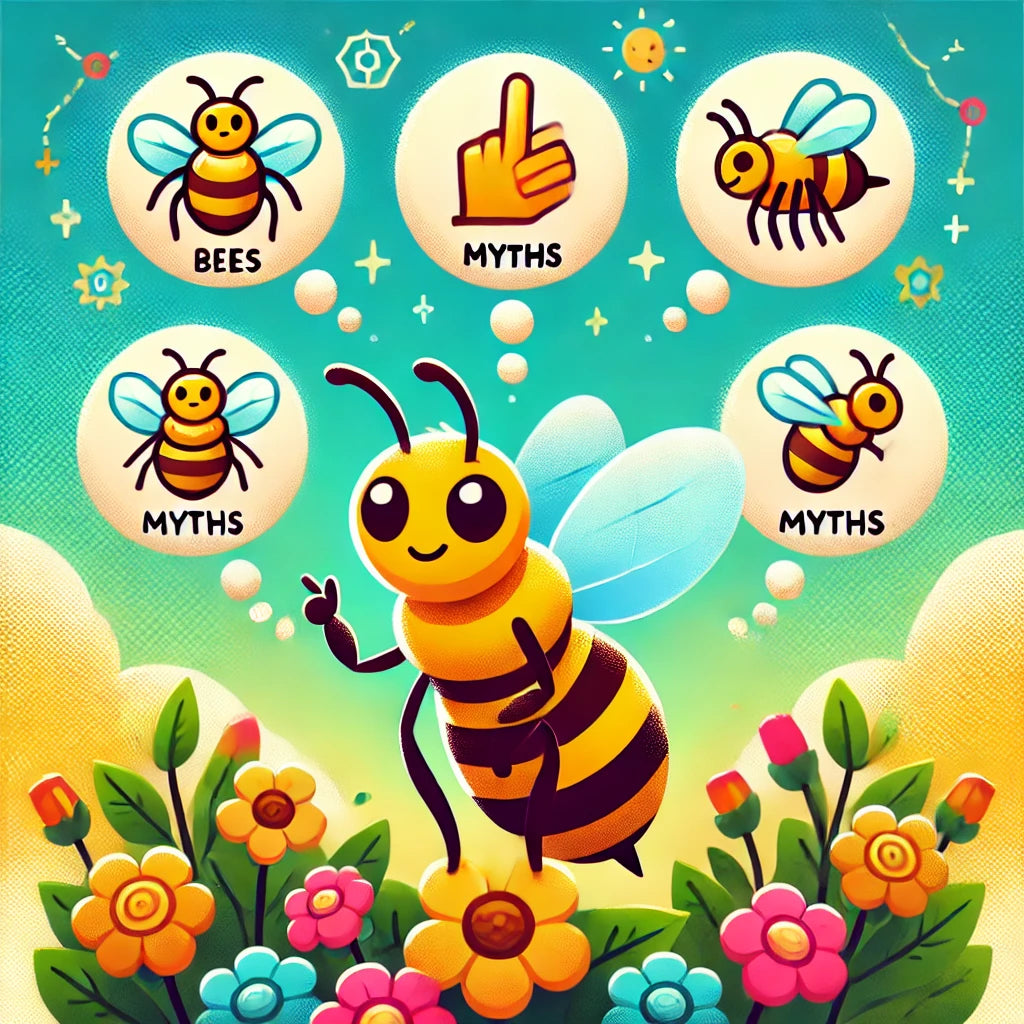Mason bees are often misunderstood, particularly when it comes to their behavior and stings. These solitary bees play a crucial role in pollination, yet many myths surround their impact on gardens and the potential danger they pose. In this post, we’ll bust six common myths about mason bee stings and explain their importance in a healthy ecosystem.
1. Myth: Mason Bees Sting Like Honey Bees
One of the biggest misconceptions is that mason bee stings are as painful and frequent as those of honey bees. The reality is that mason bees are much less aggressive. While they have the ability to sting, they do so only in very rare cases, typically when they are directly threatened. Unlike honey bees, mason bees do not die after stinging because their stingers lack barbs. So if you’re wondering, "do mason bees die after stinging?"—the answer is no, they do not.
2. Myth: Mason Bees Are Dangerous to Have Around the House
Another common myth is that having mason bees near your garden or home can be dangerous. In truth, mason bees are gentle creatures focused on pollination. They do not defend their nests aggressively like honey bees or wasps. Mason bees are solitary, meaning they don’t swarm or become territorial, making them safe to have around.
3. Myth: Mason Bees Can’t Replace Honey Bees in Pollination
While mason bees are often overlooked in comparison to honey bees, they are actually superior pollinators for certain crops. Their unique pollination technique, known as "buzz pollination," makes them highly effective for plants like blueberries and apples. In fact, just a few mason bees can do the work of hundreds of honey bees when it comes to pollination.
4. Myth: You Must Buy Bees for Your Garden
Contrary to popular belief, you don’t need to buy mason bees to support their population. How to start a bee farm in your garden is simple—just provide the right environment. Mason bees are excellent at finding suitable nesting sites if you offer mason bee tubes or other appropriate nesting materials. They will come to your garden on their own, without the need for commercial bee purchases.
5. Myth: Mason Bees Will Invade Your House
Many people fear that mason bees will invade their homes, but this is highly unlikely. Mason bees prefer hollow stems and specially made mason bee houses. They do not build hives or nests inside walls like some other bee species. Their preference for small, natural cavities keeps them focused on the outdoors.
6. Myth: All Bees Are a Nuisance
Not all bees are aggressive or harmful. Mason bees, in particular, are beneficial and essential for gardens. By supporting them with the right habitats, such as bee trap attractants and proper nesting tubes, you can encourage pollination without worrying about frequent stings or aggressive behavior.
Equip Your Garden for Success with Swarm Commander
Mason bees are gentle, essential pollinators that often get a bad reputation due to misconceptions. By understanding the truth about mason bee stings and their behavior, you can create a garden environment that supports these vital pollinators.
Help your garden thrive with the right tools from Swarm Commander. From beettle traps for beehives to guides on bee hive relocation, Swarm Commander has everything you need to support your mason bees. Visit Swarm Commander to get started.
Frequently Asked Questions Mason Bees and Their Stings
Q1. Do mason bees die after stinging?
No, mason bees do not die after stinging because their stingers don’t have barbs like honey bees.
Q2. Are mason bees aggressive?
No, mason bees are solitary and non-aggressive. They rarely sting and are safe to have around homes and gardens.
Q3. How do mason bees contribute to pollination?
Mason bees are highly efficient pollinators, particularly for fruit trees like apples and cherries. They use a technique called buzz pollination, which makes them more effective than honey bees for certain crops.
Q4. Do I need to buy mason bees for my garden?
No, you don’t need to buy mason bees. Providing proper nesting materials like mason bee tubes will naturally attract them to your garden.
Q5. Can mason bees live in man-made nests?
Yes, mason bees readily use mason bee houses or hollow tubes placed in sheltered areas. These artificial nests provide them with safe places to lay eggs.
Q6. Are mason bees affected by pesticides?
Like all bees, mason bees are sensitive to pesticides. Reducing chemical use in your garden will help protect them and support their role in pollination.



